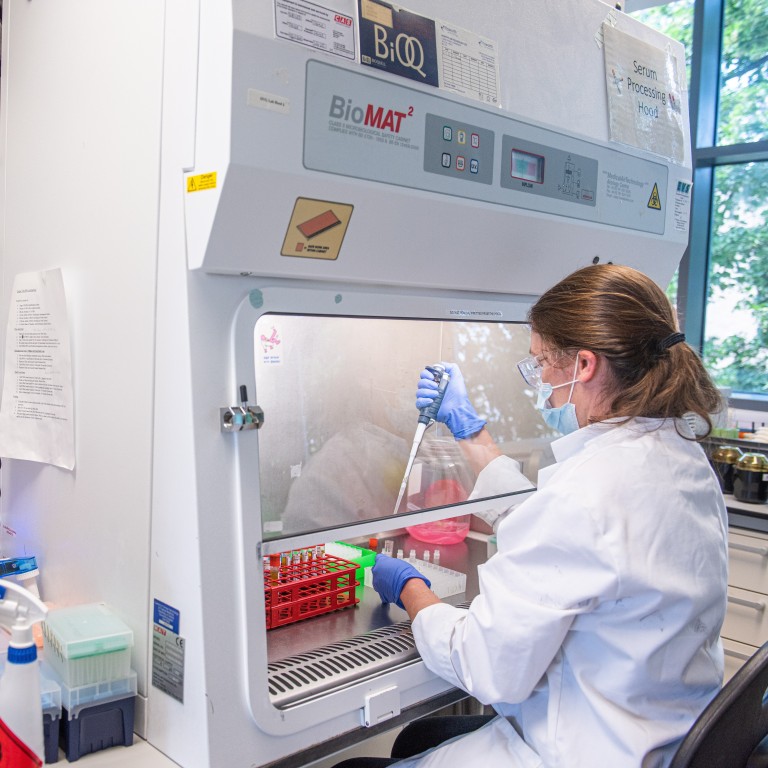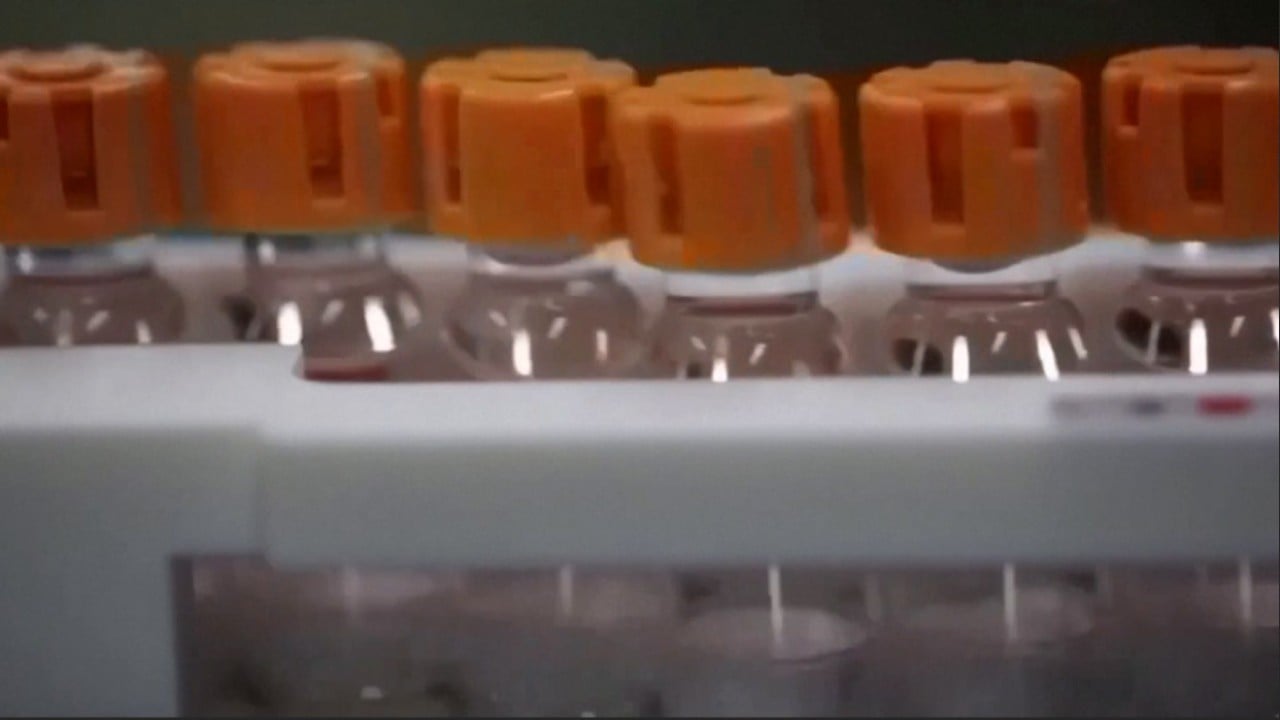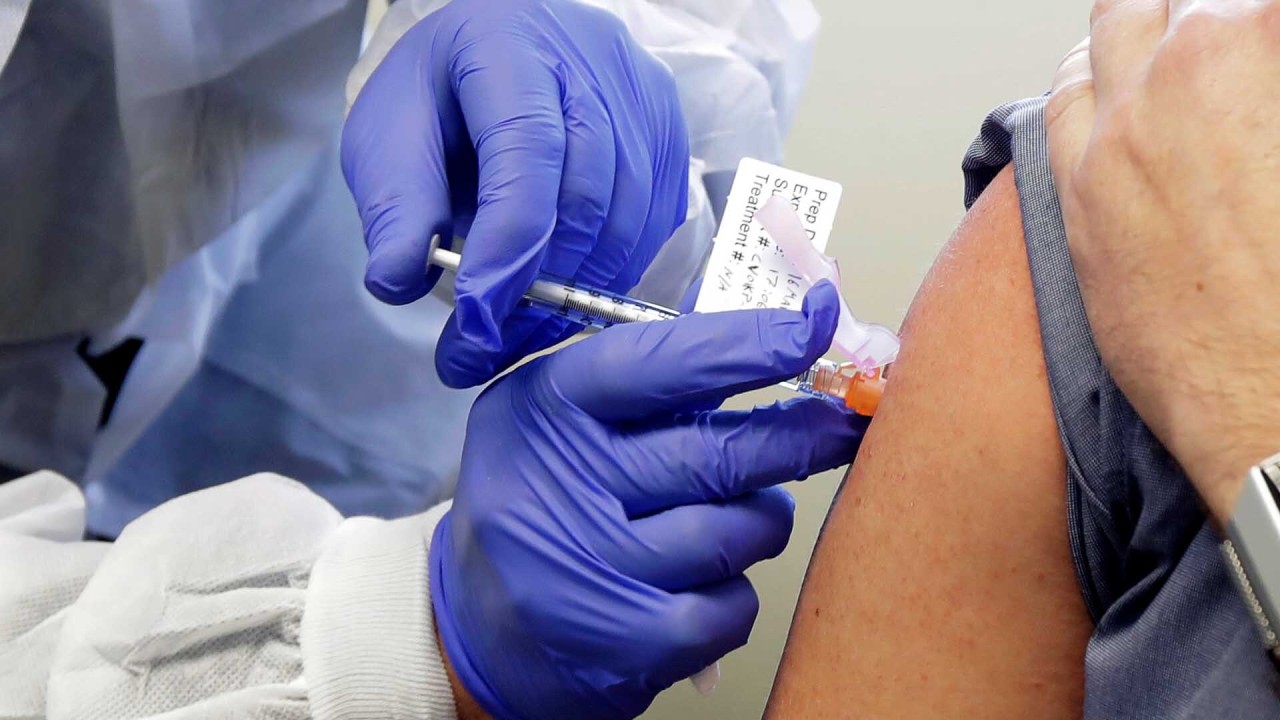
Coronavirus: AstraZeneca-Oxford vaccine ‘offers up to 90 per cent’ protection in trials
- Vaccine candidate appears to reduce transmission of asymptomatic infections and can be easily stored and distributed
- Smaller dose of drug seems to be more effective but more investigation needed, developers say
A number of other vaccine candidates have announced promising interim results in the last few weeks but the AZ-Oxford prospect stands out because it appears to reduce transmission of asymptomatic infections.
Mass Covid-19 testing of Shanghai airport workers as city reports new cases
The AZ-Oxford vaccine is also easier to store and distribute, requiring a constant temperature of 2-8 degrees Celsius (35.6-46.4 degrees Fahrenheit), or within the range that most drugs are now kept.
The Pfizer-BioNTech vaccine needs to be stored at -70 degrees Celsius and the Moderna one at -20 degrees Celsius for the long term, though a higher temperature is possible for much shorter period.
Sarah Gilbert, professor of vaccinology at the University of Oxford and head of the team working on the vaccine, said all these vaccines would together help to contain the coronavirus pandemic.
“No one developer, no one manufacturer is going to be able to produce enough to cover everywhere. Having multiple vaccines, particularly different manufacturing technologies that can be manufactured globally and distributed globally is really important,” Gilbert said on Monday.

02:30
Pfizer coronavirus vaccine more than 90 per cent effective, US drug maker says
“We have to get a lot of people vaccinated. We have to think about vaccinating communities and populations, reducing transmissions in those populations so we can really get on top of the pandemic. That’s what looks like we are going to have the ability to contribute in a really big way.”
The interim phase 3 AZ-Oxford trial showed the efficacy was 70 per cent, averaging from two separate dosing regimens. One dosing regimen, involving two full doses given a month apart, had an efficacy of 62 per cent and the other, involving a half dose first then a full dose a month later, yielded 90 per cent efficacy.
Scientists working on the project said the 90 per cent efficacy trial involved 3,000 participants and they needed to further look at the data to understand why the lower dose had the higher efficacy.
Call for influenza shots to prevent co-infection, lung damage amid pandemic
“If you give a single dose, almost all the vaccines, the higher dose you give the higher immune response [you get], but we are not giving a single dose,” said Andrew Pollard, director of the Oxford Vaccine Group and chief investigator of the Oxford vaccine trial.
“We think by giving a smaller first dose we are priming the immune system differently and setting the immune system better to respond. What we don’t know at the moment is whether [the] difference is in quality or quantity of immune response.”
AstraZeneca has a rolling application with the drug regulator in Britain for regulatory approval and will be in talks with the US Food and Drug Administration this week to change the design of the trial.

02:23
Moderna Covid-19 vaccine nearly 95 per cent effective in second promising trial for US drug makers
Mene Pangalos, AstraZeneca’s executive vice-president of biopharmaceuticals R&D, said the half dose and then full dose regimen was better tolerated than the two full doses.
AstraZeneca would have enough of its candidate vaccine for 200 million doses by the end of 2020, with “drug substance” for 700 million doses by the end of the first quarter of 2021, operations executive Pam Cheng said.
The company said earlier that it would immediately prepare regulatory submission of the data to authorities around the world that had a framework in place for conditional or early approval.
AstraZeneca has joined the Covax Facility, a United Nations initiative for equitable access to Covid-19 vaccines, and will seek an emergency use listing from the World Health Organization for an accelerated pathway to ensure vaccine availability for low-income countries.

